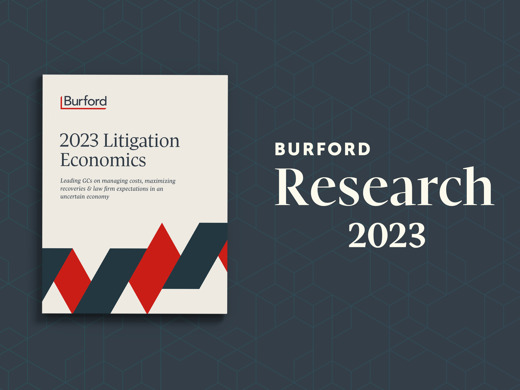Burford's 2023 Litigation Economics




Burford's latest research features leading GCs on managing costs, maximizing recoveries & law firm expectations in an uncertain economy. The survey draws on interviews with 66 senior in-house lawyers at companies in the US, Europe, Asia and Australia to show that the legal department has an opportunity to be part of the solution to help businesses thrive during a period of sustained economic uncertainty.
The world economy is facing a period of sustained uncertainty. As companies look to manage risk and costs, the legal department has an opportunity to position itself…